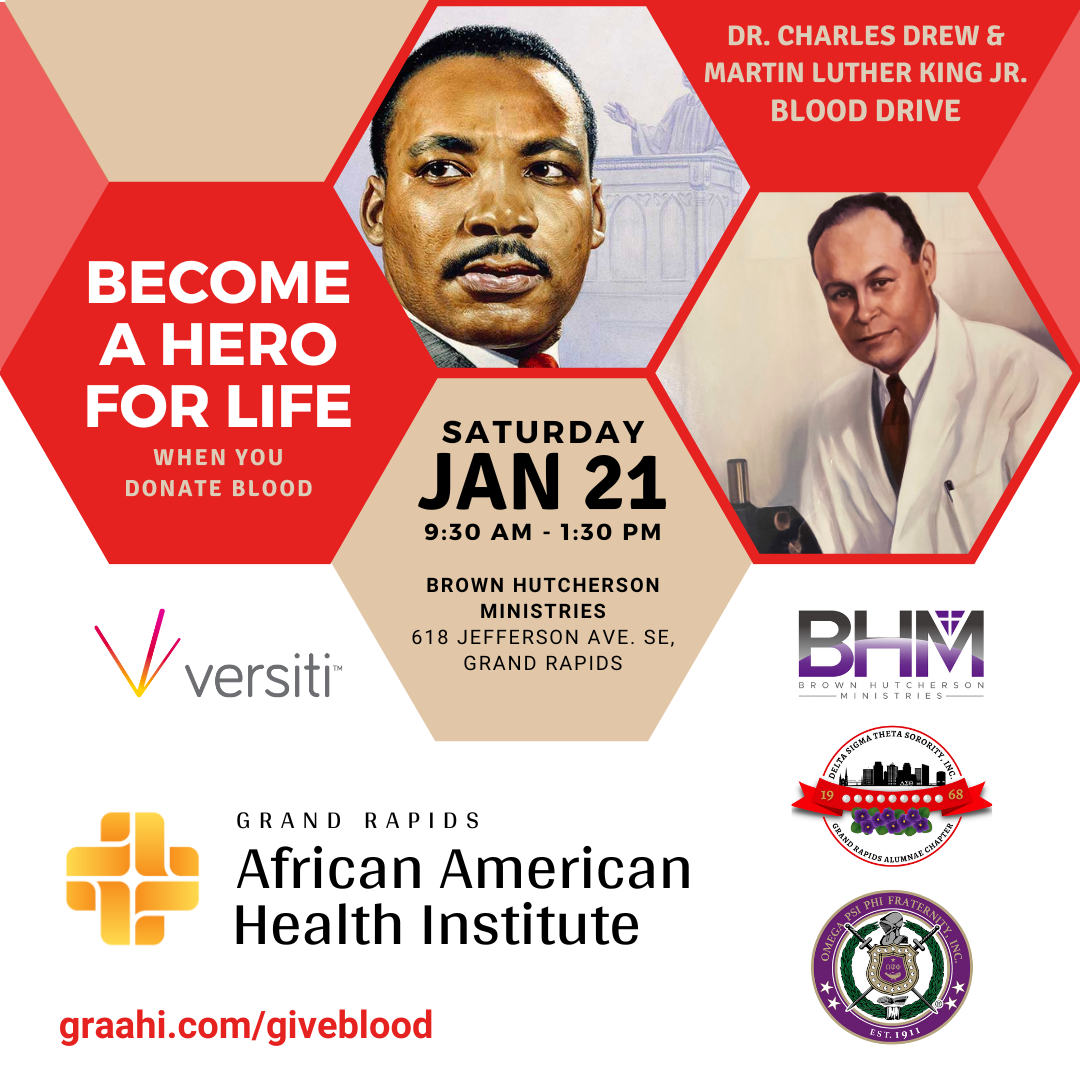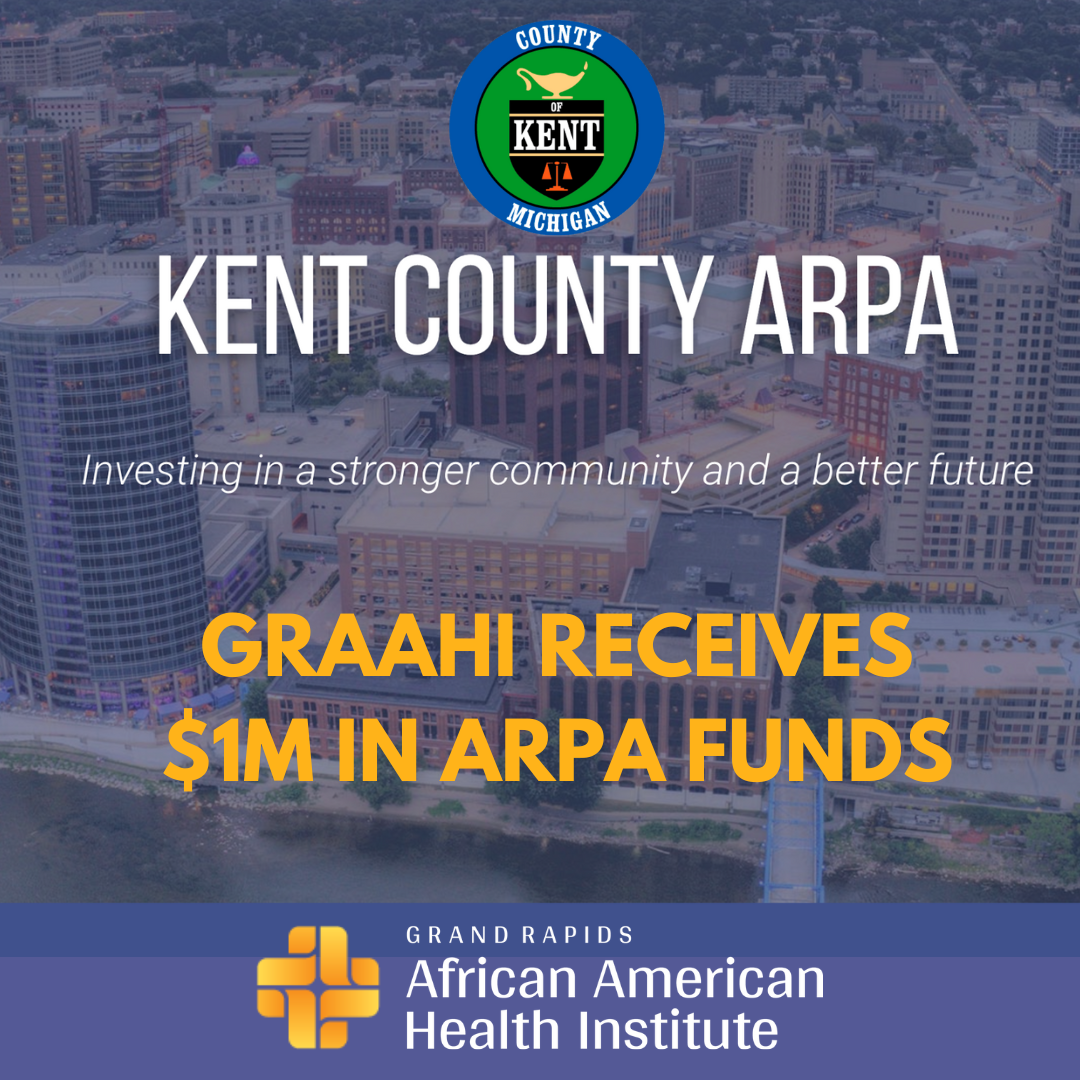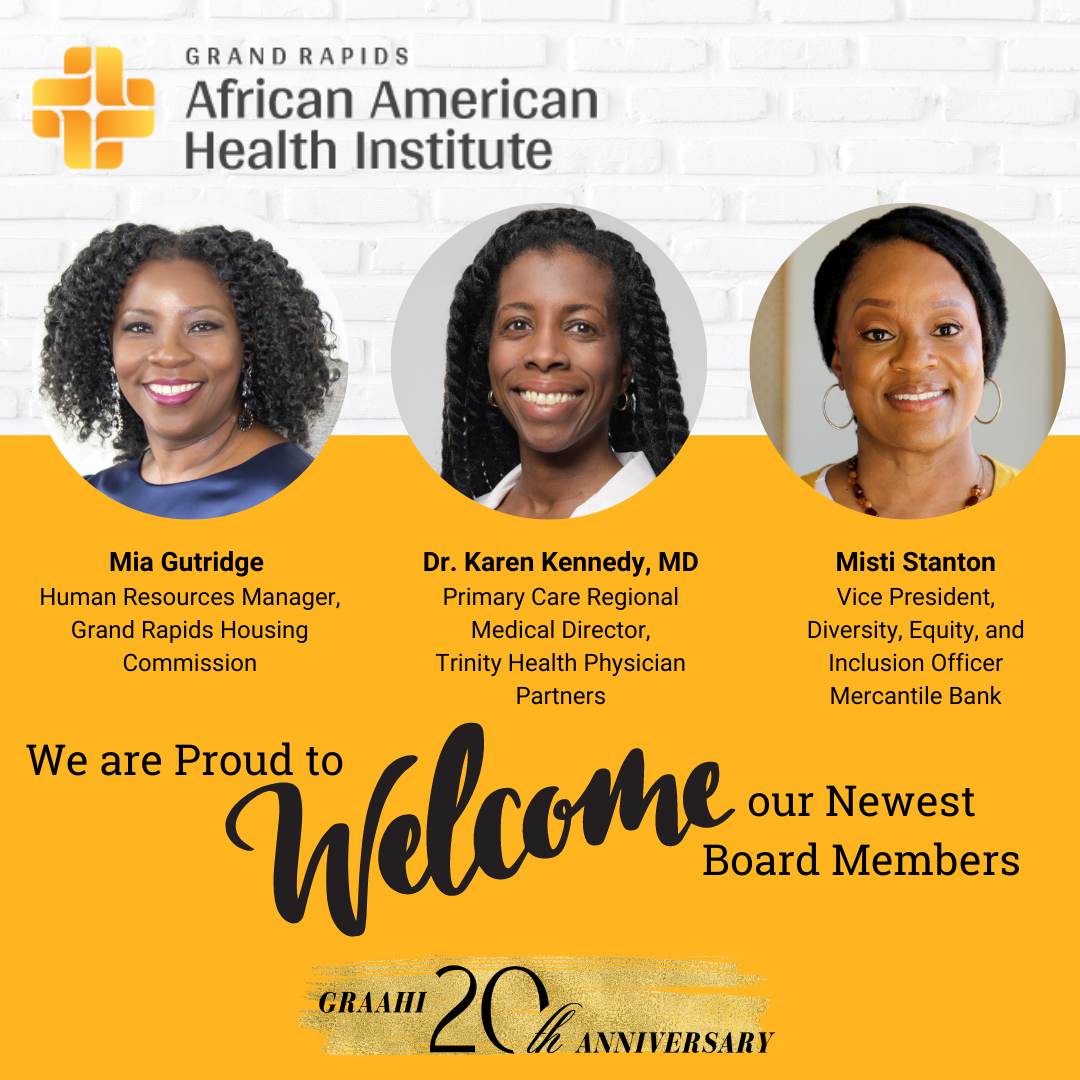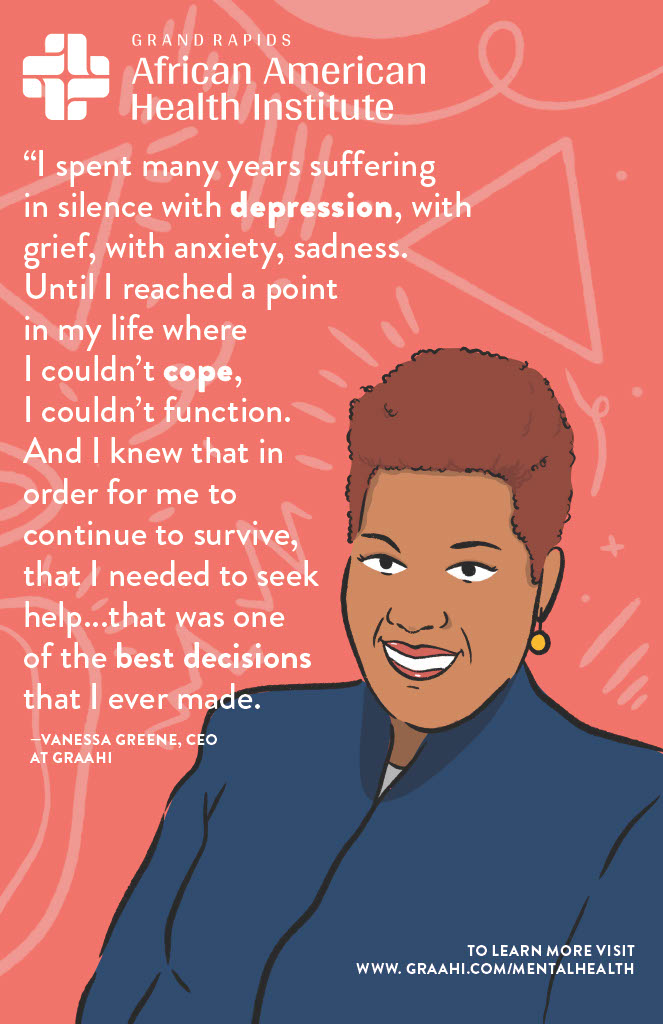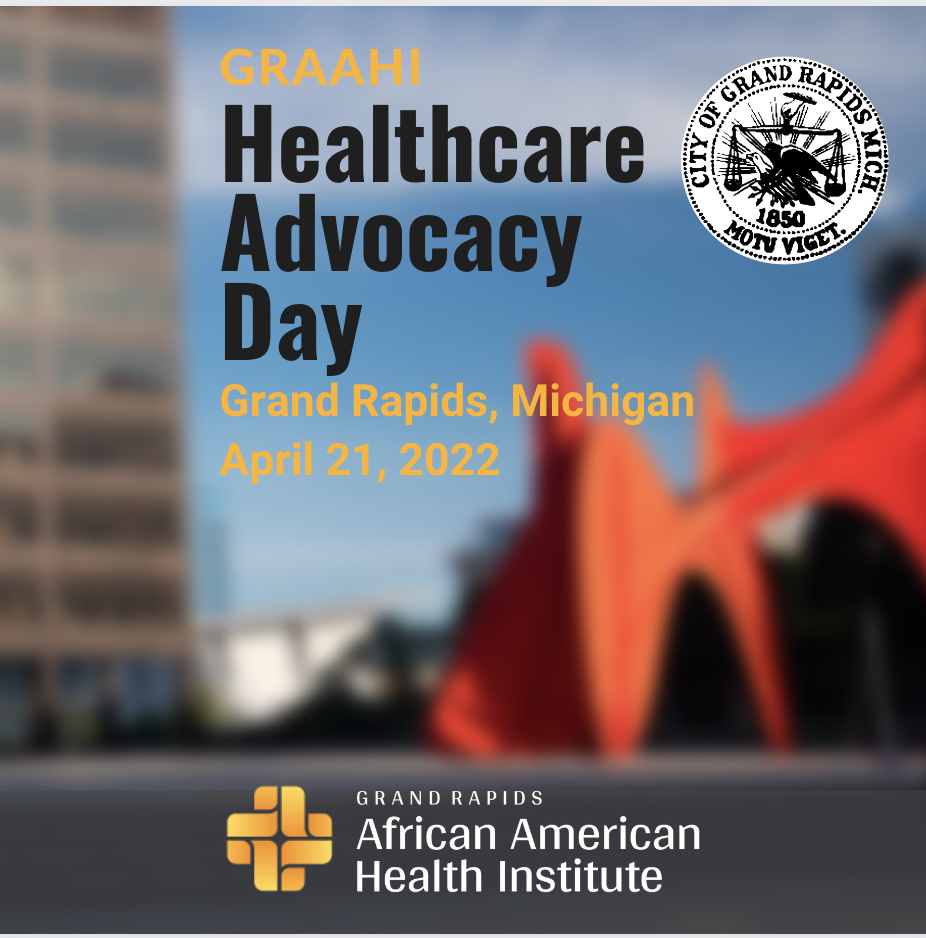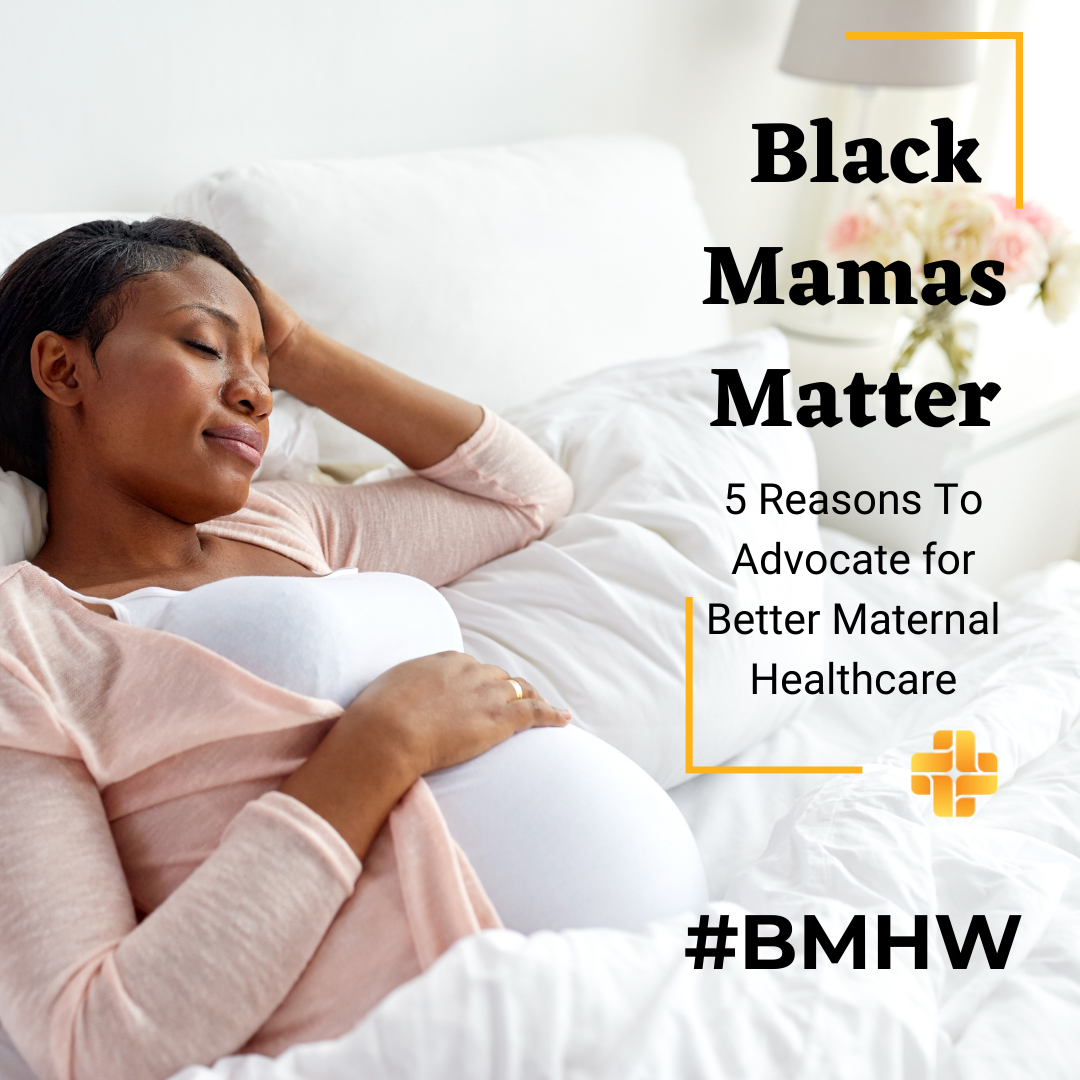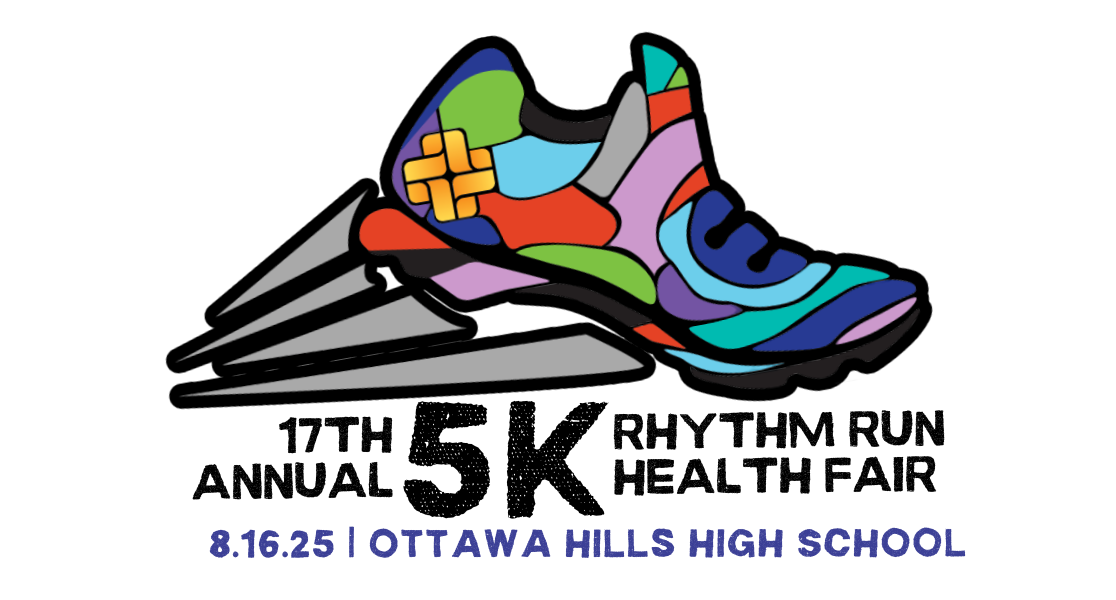This January, National Blood Donor Month, GRAAHI follows in the footsteps of two heroes for life, Rev. Dr. Martin Luther King, Jr., and Dr. Charles Richard Drew, by joining with Versiti to hold a Blood Drive at Brown Hutcherson Ministries.
In the 1940s, Dr. Charles Drew laid the groundwork for today’s modern blood donation program through his innovative work in blood banking. The Red Cross blood bank program began in 1940, under the leadership of Drew who became the organization’s first medical director in 1941.
“He was a surgeon, educator, scientist and the first African-American blood specialist who helped shape the blood services industry. His legacy is far-reaching and we hope this drive helps educate the community about the need for a diverse blood supply,” said Vanessa Greene, CEO of the Grand Rapids African American Health Institute.
Why is an ethnically diverse blood supply important?
Because blood type is inherited, a compatible donor is often someone of a similar ethnic background. Diversity in donation is important for improved patient outcomes, as rare and uncommon blood types are often found in similar ethnic populations.
For example, sickle cell patients may require chronic blood transfusions to treat their disease, Since 44% of African Americans have Ro blood, providing matched Ro blood to sickle cell patients may provide a safer blood transfusion. Patients are less likely to experience complications from blood donated by someone with a similar ethnicity.
Become a Hero for Life and feel the good benefits of supporting your community. Join us January 21st from 9:30am to 1:30pm at Brown Hutcherson Ministries, 618 Jefferson Ave SE, Grand Rapids, MI, 49503. GRAAHI seeks to create a welcoming and safe environment with a team focused on supporting your needs as you donate.
Every pint can save 3 lives!To sign up to donate, and learn more about Dr. Drew, go to graahi.com/giveblood.
